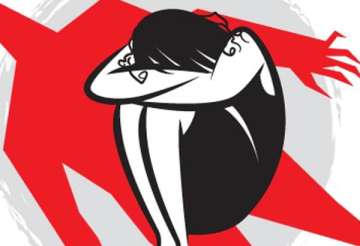MP: Banchhada Community celebrates birth of girls, but for flesh-trade
For the community prostitution is a way of life, passed down generations and young girls are groomed to become prostitutes as male members mostly live off their earnings.
While female foeticide due to preference for boys is an issue that is plaguing India, there is a community in Madhya Pradesh that actually celebrates the birth of a girl child, albeit for not so positive reason.
Members of Banchhada community, who operate family-based prostitution for livelihood, consider the birth of a girl auspicious as it means another breadwinner for the family.
For the community, which is mainly settled in Ratlam, Mandsaur and Neemuch districts of Madhya Pradesh, prostitution is a way of life, passed down generations and young girls are groomed to become prostitutes as male members mostly live off their earnings.
“This belt- Ratlam, Mandsaur and Neemuch- although notorious for opium cultivation, is also known for Banchhada community, in which prostitution has been given a societal approval,” Akash Chouhan, coordinator of Nai Abha Samajik Chetna Samiti, an NGO that works for the uplift of this community, told PTI.
“As the members of the community are dependent on the women of the family for livelihood, they always celebrate the birth of a girl child with pomp, unlike others. For earning their bread, the male members allow their women to indulge in prostitution, although it is illegal in the eyes of law,” he added.
Citing a census report, Chouhan said, “The total population of Banchhada community, which is spread over 75 villages in the three districts, is about 23,000, of which at least 65 per cent are women.”
A survey conducted by the Madhya Pradesh Women Empowerment Department in 2015 in 38 villages in Mandsaur, showed that their population in the district was 3,435, with 2,243 women and 1,192 men. “It means as compared to men, the population of women is almost the double,” Chouhan said. A similar exercise conducted in 2012 in Neemuch’s 24 Banchhada-dominated villages also showed that the number of women is more than the men-- 3,595 women and 2,770 men. “All this shows that they give importance to women, but for the wrong reasons,” Chouhan said. Prostitution has led to the menace of human trafficking in the community.
In order to improve the financial condition of the family, Banchhada members buy girls from different parts of the state or country.
“They indulge in human trafficking by purchasing newborn girls from different areas. Once the girls grow up, they are pushed into prostitution,” Chouhan said. Lawyer Amit Sharma, who is also an RTI activist, said, “This is a serious issue as the rise in the number of women in the community is mainly because they purchase girls from different parts of the state.”
He said that during a raid in Neemuch district in July 2014, a 6-year-old girl was found in the house of a Banchhada family.
“The woman of the family later revealed that they had purchased the girl in 2009 from Nagda (In Ujjain district) and the deal was sealed on Rs 500 stamp paper,” he said. The woman was later booked for human trafficking and arrested, Sharma added.
“The entire process of purchasing and selling a girl in Banchhada community is done in a very organised manner, with the help of middlemen. Unfortunately, the community looks at it as an investment,” he said.
He claimed that the members of the family, who purchase the girls, do not take proper care of them. “They think they have bought the girl by paying money, which is generally in the range of Rs 2000 to Rs 10,000,” he said. Police say that although measures were being taken by them to curb the prostitution and human trafficking in the community, social awareness was required to eliminate these malpractices.
“All the steps that police take on the issue prove insufficient as in order to end these evils from the community, there is a need for awareness,” Neemuch District Superintendent of Police (SP), T K Vidyarthi, said, “We have initiated steps in this direction by conducting a survey of the community and ensuring that their children go to school. They have started getting jobs and our officials also take their classes, especially of the educated kids, to prepare them for competitive exams,” the SP said.
